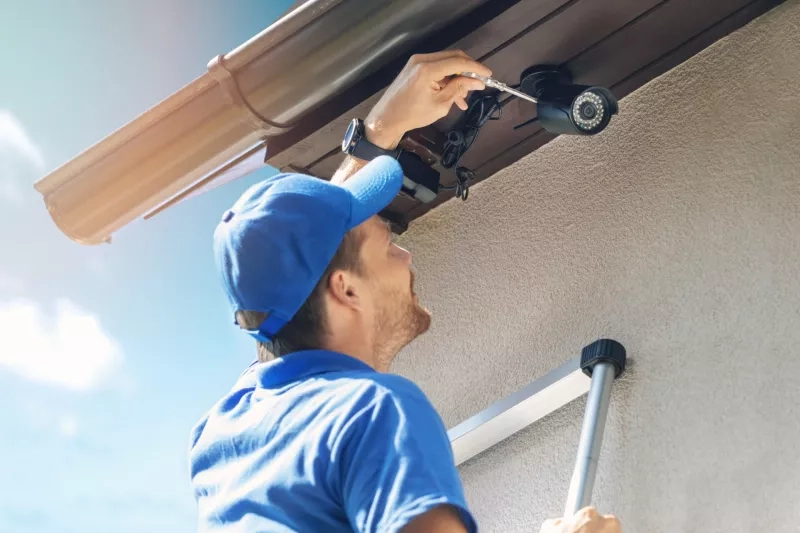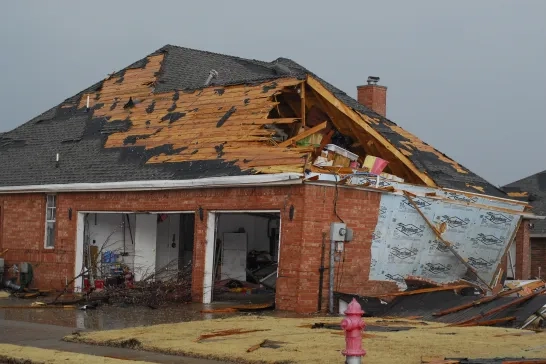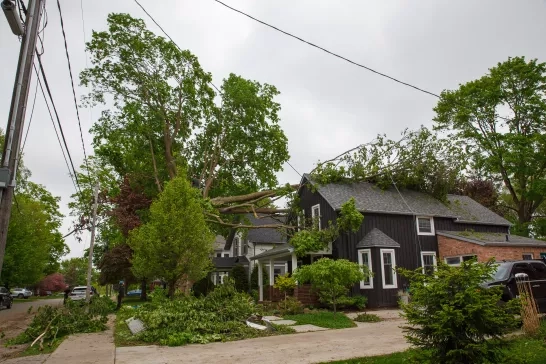
8 Home renovations that could save you money
4 Minute Read
Deciding to renovate your home is a big decision; it can take a lot of time and be costly. But did you know that some upgrades, like new windows, can help save and boost the value of your home when it comes time to sell?
But that isn’t all; renovations can lower your heating cost or help you save on home insurance. Here are eight of our top projects to improve your home and help you save on your bills.
Fire alarms, CO2 monitors and sprinkler systems
Upgrading your fire alarms, CO2 monitors and adding a sprinkler system are great ways to keep your family safe.
We all know the importance of having working smoke detectors in our homes. Still, upgrading to a hard-wired fire alarm system better ensures your safety. Hard-wired systems last longer than their battery-operated counterparts. Since they depend on your home’s electricity, these fire alarms last longer, and you don’t have to worry about changing the batteries. They also have a backup battery in case of power outages.
CO2 monitors track levels of carbon monoxide in your home. They help notify you when you need to improve the airflow or when carbon monoxide levels are too high. Many models are on the market, including ones that integrate with your smart home system so you can easily keep your family’s health and safety in mind.
Adding a CO2 monitor, fire alarms, or even sprinkler system can significantly improve your home’s safety by alerting you to dangers within your home. For added protection, add a sprinkler system. Sprinkler systems can quickly extinguish a fire before it spreads, minimizing costly damage and potentially saving lives.
Security system

ronstik | iStock
Adding a security system is a smart choice to protect your home and your wallet. Often homes with an installed security system are considered lower risk by insurance providers. If you are installing a security system or already have one, contacting your insurance provider could lower your premiums. A security system reduces the likelihood of theft or burglary and decreases the potential loss or damage the insurance company may have to cover.
Smart home systems can send updates and alerts to your phone, no matter where you are. These systems make it easy to check on your home and loved ones from your fingertips, giving you peace of mind.
HVAC system
Not only does upgrading your HVAC system make your home more comfortable, but it also can help lower your monthly bills.
Whether changing your entire system or just your thermostat, upgrades to your HVAC can make your system more energy efficient and help you save on your hydro bills. Plus, newer systems are better at keeping your home at a consistent temperature and ensuring that your whole house stays at the desired temperature.
Windows, siding, and roof
Updating your home’s exterior is a great way to boost curb appeal and increase your resale value. But did you know replacing your roof, siding, or even windows and doors can save you money in the long run?
You may be updating your home’s exterior because you’re ready for a new look or because it’s time to fix up holes or cracks that have happened over time. Either way, new siding helps keep your home at a consistent temperature, as it doesn’t allow the cold air from your air conditioning or the warm air from your furnace to escape. New windows and doors also help you save on heating and cooling.
When it comes to your roof, it is always better to replace it before you need to. Getting your roof re-shingled helps protect your home from leaks and water damage. Plus, a new roof can also reduce heating and cooling costs.
Electric or gas fireplaces

hikesterson | iStock
As Canadians, we love finding more ways to stay cozy in the winter months. But have you considered replacing your fireplace? If you do, we recommend picking an electric or gas fireplace, which can help you save on your home insurance. Wood-burning fireplaces can be a fire hazard and increase the risk of a home insurance claim. In contrast, electric fireplaces are generally considered safer and are less likely to cause fires.
Sump pump
Adding a sump pump can help save your home from water damage and your wallet from costly repairs. A sump pump works to remove excess water that may accumulate in the basement or crawl space, preventing it from flooding your home.
By keeping your basement dry, you can avoid costly water damage repairs, such as foundation damage, mould growth, and ruined flooring or furniture. Plus, many home insurance companies offer discounts for homes with sump pump installations because they are a preventive measure against water damage.
Landscaping

didesign021 | iStock
Caring for your lawn and gardens can boost your home’s curb appeal. But landscaping can also help protect your home from costly damage.
Have landscapers inspect large trees, especially those close to your home, to ensure they are sturdy and healthy. Then, have the experts remove any trees at risk of falling.
What to consider before you start your renovation
Before starting any home renovations, it’s important to plan and understand your municipality's requirements. Get the necessary permits and consult qualified experts to ensure the changes are up to code.
While no specific renovations guarantee savings, they can increase the value of your home and save you money on your insurance premiums. If you are considering a home renovation, talk to us. Call 1-888-545-7254 to speak to a licensed CAA Insurance Agent for a complementary policy review and to discuss the best ways to maximize your savings.
Property Insurance is underwritten by CAA Insurance Company. Certain conditions, limitations and underwriting guidelines apply.




